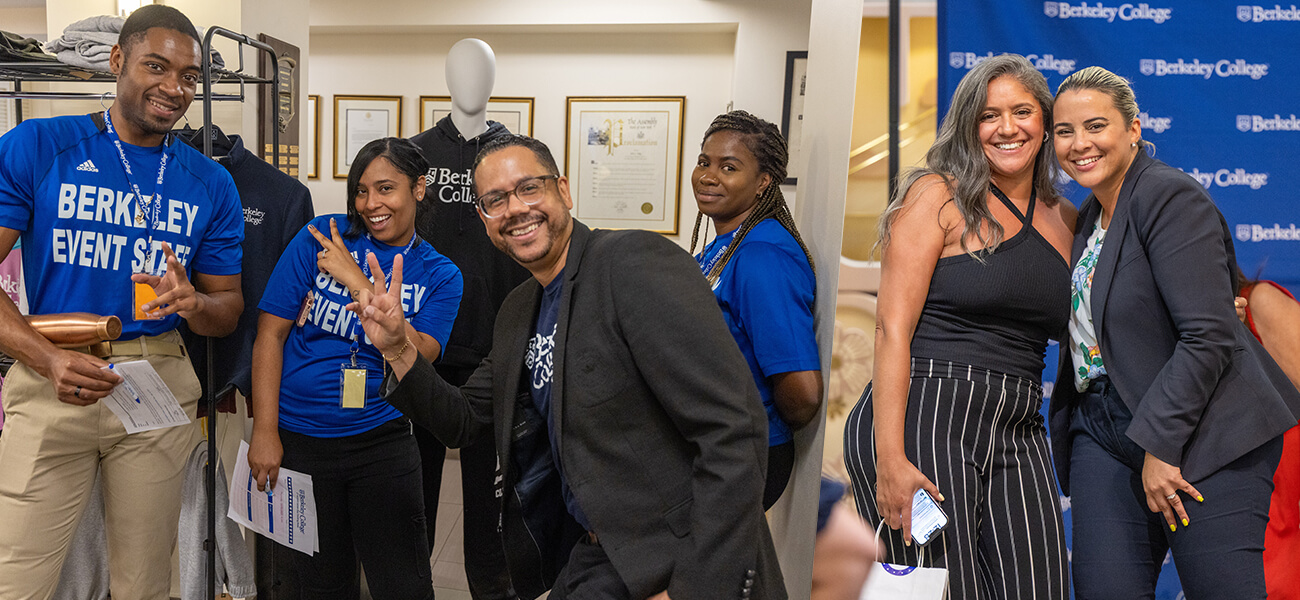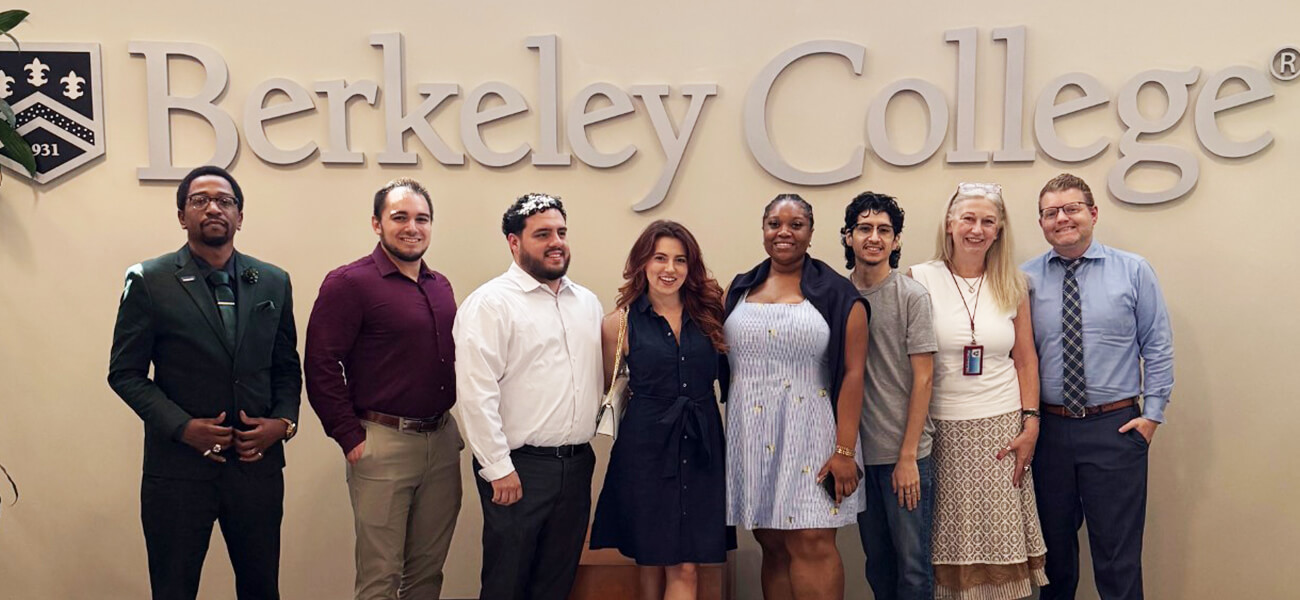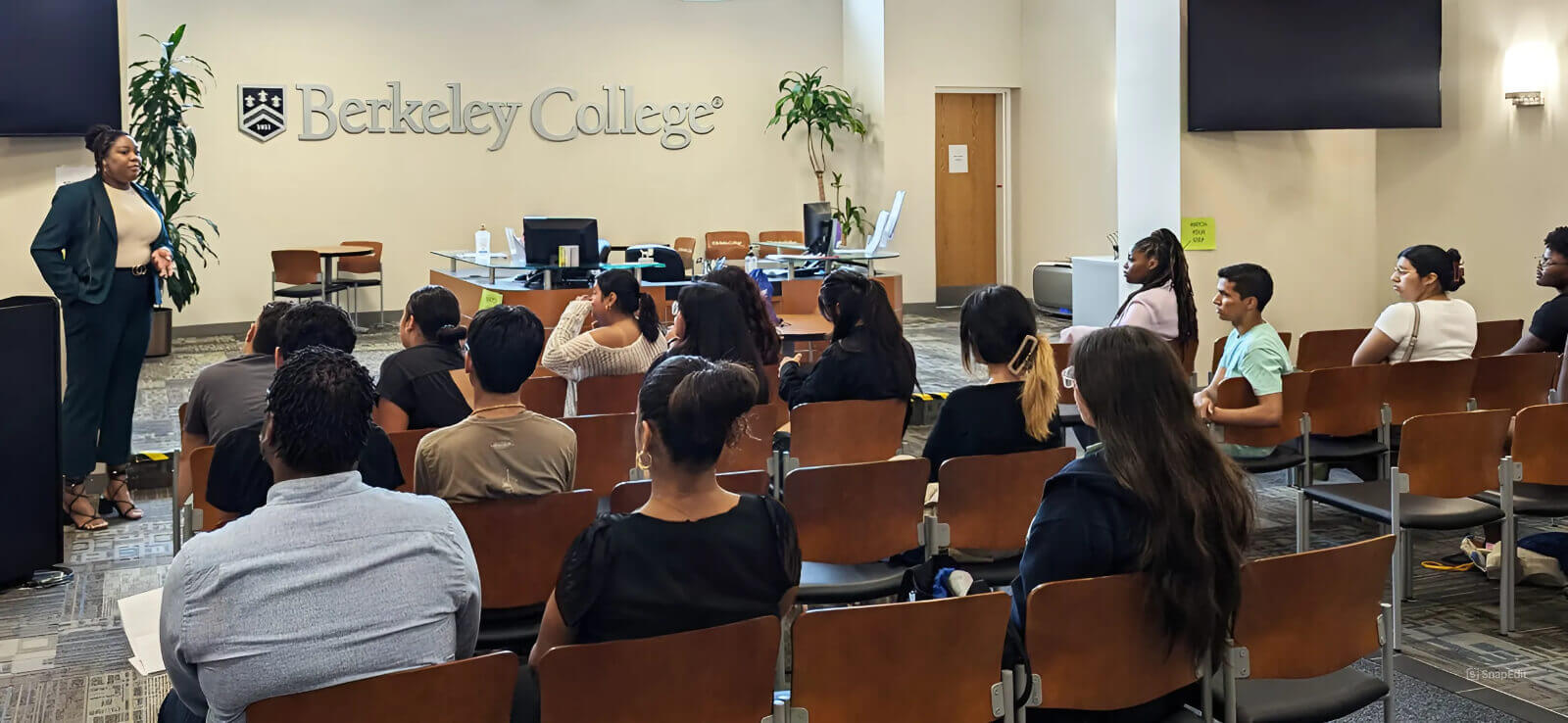Transfer Opportunity Program Grant Helps Berkeley Students Expand Their Opportunities
After earning an Associate’s degree at a Michigan college, Sarah Hersh came to Berkeley College to pursue her Bachelor’s. Through the Transfer Opportunity Program Grant (T.O.P. Grant), Sarah was eligible for a grant of 50 percent of the tuition in her full-time Bachelor’s degree program.
We spoke with Sarah about her Berkeley experience and about her passion and dreams in her chosen field of interior design.
Q: Why did you decide to major in Interior Design?
A: I have always loved art ever since I was a little girl. I began taking art lessons around the age of 10 and really enjoyed the self-expression I was able to create through my artwork. It seemed fitting to go into interior design because it was already a field I had knowledge and excitement for. I also really wanted to go for a degree that would allow me help people, and combining that desire with my interest in art was a really exhilarating combination to aim for.
Q: Why did you choose the Interior Design program at Berkeley College?
A: I was transferring with an Associate’s degree from another school and Berkeley made it very easy for me to transition into the Bachelor's degree program. I also really liked that the classes were small and I wouldn't get lost in the shuffle.
Q: What are some of the most important things that you learned about the program?
A: It taught me about myself. By going to Berkeley, I got the opportunity to learn more about my strengths and weaknesses and take the time to improve them, for each project that preceded the next. I learned how to work on time management and communication tremendously which are very big aspects in this career. All in all, the most important thing I learned from this program was how to find my voice and truly have confidence in myself.
Q: What was the Berkeley experience like?
A: I really enjoyed getting to know the professors on a more personal level and getting individual attention, since the classes were kept small. I was able to ask questions and really understand what I was learning, which made my experience here really beneficial.
Q: What type of degree will you be receiving?
A: My degree will be a Bachelor of Fine Arts in Interior Design.
Q: What are you career goals beyond Berkeley?
A: I hope to work for a really solid commercial company after I graduate. I like working on big projects that can benefit many people, so I'm hoping to get the chance to work for a company that focuses on that. I'd love to work on a hospital project! That's been my dream ever since I got into this field.
Q: Why do you enjoy working with these types of organizations and projects? What do you mean by benefit?
A: In “benefit,” I mean creating an environment that really helps people function within the space better. I like to work on commercial projects because it’s a lot broader than residential. Residential is exciting but on a smaller level - working one-on-one with a homeowner. Commercial projects involve many more people that will be taking part in a space, which excites me a lot more.

Q: Why are you so passionate about hospitals?
A: I like the idea of working on a hospital project because it takes the design to a more personal level. I’ve watched close family members endure illness, causing them numerous trips in and out of the hospitals, so I would love to be a part of a team designing this space with the personal knowledge I can bring to the table.
Q: What is your best advice for students who want to study Interior Design?
A: Go for it! If design brings you excitement, then there's great benefit in getting an education in the field.
Q: What advice do you have to be a successful college student?
A: Don't be afraid to ask questions and put in the extra effort. It's also important to welcome constructive criticism because it opens your mind to better ways of doing things.
Q: How do you describe yourself as a designer?
A: As a designer, I believe that it is very important to design a space keeping to three important key factors; practicality, comfort, and aesthetics. I believe that although a space should be beautiful, it is just as important to keep it practical and comfortable.
Q: You mentioned that you have a family. Tell me more, and what are your tips to other students who are also balancing family, school, and work?
 A: Yes! I have a wonderful husband, a two-and-a-half-year-old year old little girl, and one more on the way! I was able to balance family, school and work because of my cheerleading husband who made it possible to do so. He gave me the push to go back to school and consistently supported me through the journey. He stepped right on in alongside me with all the family obligations and kept encouraging me. Whether someone has a partner or not - if they are looking to balance family, school, and work, it is extremely important to make sure to have a support system to help you through it. It can be a friend, parent, etc., but you need to have someone in your corner.
A: Yes! I have a wonderful husband, a two-and-a-half-year-old year old little girl, and one more on the way! I was able to balance family, school and work because of my cheerleading husband who made it possible to do so. He gave me the push to go back to school and consistently supported me through the journey. He stepped right on in alongside me with all the family obligations and kept encouraging me. Whether someone has a partner or not - if they are looking to balance family, school, and work, it is extremely important to make sure to have a support system to help you through it. It can be a friend, parent, etc., but you need to have someone in your corner.
Q: What is the best way for an inspiring interior designer to market themselves and get their names out there?
A: The best way is to interact with lots of different professionals in the field. By taking part in different interior design associations, like ASID or others, it helps to get recognized and build relationships with different people. It is also a great idea to take on different internships and design jobs to start getting your name into the design world through getting actual work experience.
More about Berkeley College
If you have an Associate’s degree from a U.S. college (other than Berkeley College) you may qualify for the Transfer Opportunity Program Grant (T.O.P. Grants) from Berkeley College for the fall semester. Scholarships are renewable based on GPA and students can qualify to receive 50 percent off the tuition rate.*
In addition to the T.O.P. Grant, Berkeley offers numerous other grants and scholarships to help students finance a quality education. More than $45 million in Berkeley College institutional aid was provided to qualified students during the 2017-2018 award year. To learn more about Berkeley’s programs, as well as grants, scholarships, and other important information, please visit www.BerkeleyCollege.edu.
The views and/or opinions in this article are those of the individuals interviewed. The academic achievements and/or employment outcomes described in this article are specific to each individual and are not a guarantee of similar results for past or current students. For up-to-date and detailed information, please visit BerkeleyCollege.edu and view our catalogs at BerkeleyCollege.edu/publications.





